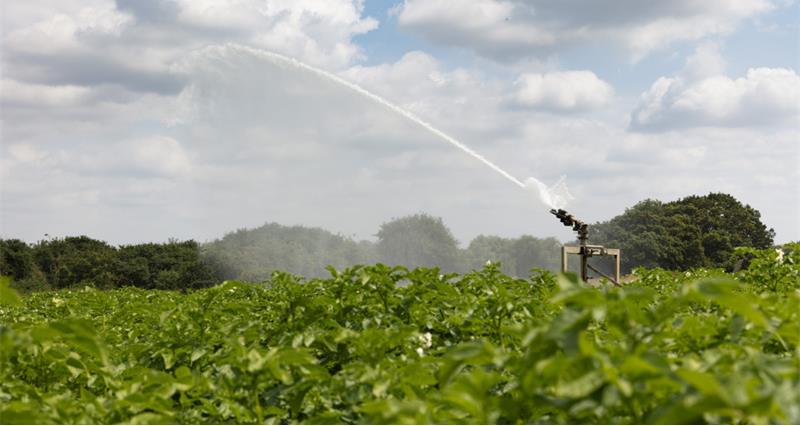WRE says its first annual progress report outlines significant advancements made during 2024 and highlights key areas of focus for the future.
WRE Managing Director Daniel Johns said: “At a time when the demand for high quality, domestically grown food is increasing, a lack of available and reliable water resources in the changing climate could limit future production.
“Our progress report describes the significant new action we are taking to support farmers and abstractor groups to better plan for the future.”
Finding innovative solutions
Studies underway to support agricultural water resource planning, funded by the Environment Agency (EA) and supported by WRE, include supply-demand balance assessments in the Cam & Ely Ouse catchment and 12 local resource option scoping studies across the eastern region.
These are helping groups of farm businesses to explore innovative water resource options and build long-term plans.
Andrew Spinks, Agricultural Business Consultant at Brown & Co has led the recent local resource option study in the Tidal Bure catchment.
He said: “Bringing a group of farmers together from the catchment has allowed us to take a detailed look at feasible options, which could be developed and implemented to ensure the security of water available for cropping in the future. It has allowed us to investigate options as diverse as new storage reservoirs, water trading and rainwater harvesting.”
WRE has also secured funding from the EA to ensure agricultural representation on its board, through Lindsay Hargreaves, to provide technical expertise for agriculture-related studies, and to co-fund with water companies detailed environmental investigations in key catchments.
WRE’s progress report highlights that household water consumption and leakage from water company networks are both reducing in line with regional and national targets.
It says that new strategic infrastructure projects to increase water supplies, for example the Fens and Lincolnshire reservoir projects, are making good progress, having concluded a second round of public consultations in 2024.
Abstraction licence reviews
To improve planning, WRE has commenced a programme of detailed investigations to explore the best ways to improve the region's water environments for the long term, including through the use of catchment and nature-based solutions.
Pilot investigations, supported by funding from Anglian Water and the Environment Agency, are underway in the Cam & Ely Ouse and East Suffolk catchments.
With further reviews and changes to abstraction licences anticipated, the pace of reform is likely to accelerate in 2025.
Teresa Meadows, WRE’s Stakeholder Lead for Agriculture, said: “There has been significant progress made to-date but a lot more to do.
“There are lots of ways farm businesses can assess the risks and consider options to ensure you have sufficient water available for your on-farm activities in the future. This could be strategic planning for your own farm’s needs, joining or helping to set up an abstractor group with other nearby farms, to feeding into the regional-scale planning being led by WRE.”
View from the NFU

NFU National Water Resources Specialist Mark Betson said: “The WRE report highlights that, despite recent wet weather, pressure continues to build on available water for agriculture.
“As well as addressing current unsustainable abstraction, the future challenges of growth and climate change will need to be met, which is behind the work on environmental destinations by WRE.
“Agriculture is a key industry for the East of England and understanding where the biggest gaps will be between supply and demand helps target action now, to come up with viable options for farm businesses in the future.”
